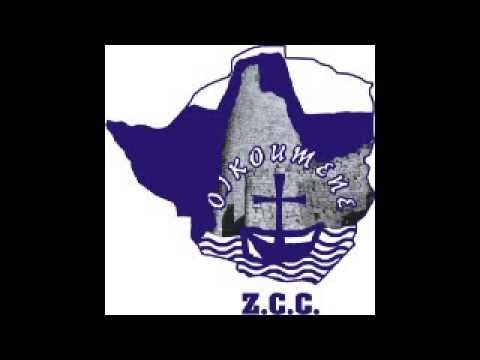
THE Zimbabwe Council of Churches (ZCC) yesterday painted a gloomy picture of the country’s economic situation, claiming several attempts by the churches to engage Finance minister Mthuli Ncube to proffer solutions to the country’s challenges had been ignored.
BY VENERANDA LANGA
This came out during a faith leaders’ breakfast meeting with the Felix Mhona-led Parliamentary Portfolio Committee on Budget and Finance in Harare.
ZCC revealed that its recent survey on the 2020 national budget performance exposed that people expected to see economic transformation during the transition from the late former President Robert Mugabe’s era to the new dispensation led by President Emmerson Mnangagwa, but there was none.
ZCC supervisor Ephraim Ngadziore said: “We churches have schools and hospitals that we run and we are surprised when we hear that the economy has achieved stability. “We are a failed leadership. There is no stability when children are not in class. Yesterday, they said Forms Three and Five should go back to school, but they did not, we know because we run schools. We cannot say the economy is stable when we do not know where we are heading to, yet after 1980, a lot of investment was put in education.” Ngadziore said school fees had gone up while some schools charged in foreign currency yet people earned Zimdollars, which exposed a serious mismatch.
“Government must engage churches and union leaders so that we come up with a solution together. We wrote to Ncube twice and he responded by declining our invite. We are the major stakeholders in the education sector with 68% schools and there is need to ensure that children are learning,” he said.
ZCC general-secretary Kenneth Mtata chided MPs, saying the electorate perceived them as gold diggers that were not interested in the welfare of people. “Many citizens are complaining that when MPs are in Parliament, they seek personal gain and not the interests of those that sent them to Parliament. We need to ensure that the 2021 national budget is responsive to the needs of the people,” Mtata said.
ZCC economic justice and youth empowerment officer Admire Mutizwa said although their economic survey painted a gloomy picture which reflected macro-economic instability, there was a bit of stability achieved in the exchange rate which has steadied.
- Chamisa under fire over US$120K donation
- Mavhunga puts DeMbare into Chibuku quarterfinals
- Pension funds bet on Cabora Bassa oilfields
- Councils defy govt fire tender directive
Keep Reading
“In 2020, citizens expected the budget to attend to the most pressing needs, particularly the deepening health crisis, inflation, exchange rate instability, extremely low salaries, poor service delivery, foreign currency shortages, and the fuel and electricity crisis,” he said.
“Since 2018, we were agitated by austerity measures implemented in the Transitional Stabilisation Programme (TSP). It seems we did not learn from the Economic Structural Adjustment Programme (ESAP) and we continue to have policies that have a huge social cost to society.”
Mutizwa said the 2020 budget did not address developmental issues, adding: “We are saying that an economy should produce jobs, health delivery and service delivery for the dignity of citizens. We feel that the issue of combating corruption and revenue leakages were not addressed by the 2020 budget, which was also too thin at $63,6 billion, which is only US$3,5 billion and is far much less than previous years’ budgets which were around US$4,5 billion.”
He said in crafting the 2021 national budget, MPs should look at how best to expand the revenue base in order to grow the national cake.
“In 2021, we call for allocation of more resources towards health so that we reach the 15% threshold required by the Abuja declaration. This should be the same for the education and the agriculture sectors,” Mutizwa said.
The ZCC economist also said the country continued to fail to attract foreign direct investment, adding that investors could not be attracted to a country with a fuzzy political history, and inconsistent monetary policies where people would opt to keep US$1 200 at their homes than at the bank.
“If people cannot leave US$1 200 in a bank account, how do you think an investor can come and leave US$1 billion in a bank? We need to address issues to do with our political history and macro-economic issues in the country. We also need to unlock the resources that are in the mineral sector and enforce the Extractive Industry Transparency Initiative (EITI),” Mutizwa said.
Churches also said relative stability in the foreign currency exchange market as well as the surplus that Ncube claimed were both achieved through a huge social cost, where people suffered and their dignity was eroded.
“We have eroded the dignity of public service workers and our worry is that you cannot undertake meaningful transformative reforms when working with people that are demoralised. We call upon the 2021 budget to address this issue. Any reforms must not have a negative impact on our people because we may transform at a huge cost for our people and undermine their dignity.
“Many citizens are also complaining that the current efforts to combat corruption are inadequate. We are also worried that the 2021 national budget is being debated before we receive the Auditor-General’s 2020 audit reports which we thought would inform us on how previous corruption issues were addressed. We also feel that the 2021 national budget should speak strongly on restoring confidence in the banking sector,” Mutizwa said.
He said there were many social protection schemes in the country, but they were fragmented, lacked transparency and were implemented along partisan lines.
“Our land should produce for the nation, but we note with sadness that 8,4 million people are estimated to be food insecure until the end of March 2021. We call for the nation to revisit the land question,” ZCC said.
Mhona said the shrinking budgetary resources were the reason why achievement of most rights remained a pie in the sky.











